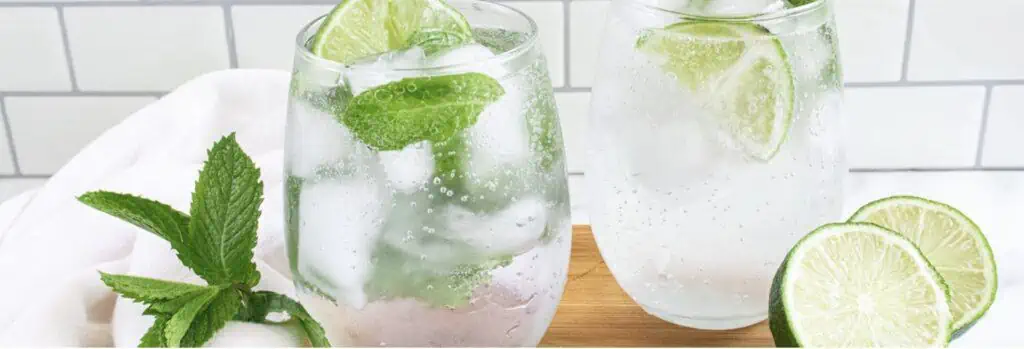Grapefruit & Medications: Not A Love Story

There’s no doubt about it: Grapefruit is good for you!
It’s rich in vitamin C-rich, low in sugar, and contains vitamin A, potassium, and fiber. It has a low glycemic index and does not spike your blood sugar when you eat it. The pink and red varieties also contain lycopene, a powerful antioxidant.
It’s definitely a nutritious health-promoting food.
There was even a whole weight-loss diet created around grapefruit – the “grapefruit diet” — starting back in the 1930s and popularized every 20 years or so since. Research has proven that grapefruit doesn’t have any magical weight loss properties, but you’re not going to gain weight on grapefruit either. Just don’t eat it with the sole purpose to lose weight.
But…
There is something you need to know about grapefruit if you take medications.
Grapefruit-Medication Interaction
Grapefruit enhances the effects of many medications — over 85 at last count; this is sometimes called the “grapefruit effect.” Taking grapefruit (or its juice) along with certain medications — even a day or more apart — can increase the risk of side effects.
For example, when taken with certain blood pressure-lowering medications, the blood pressure can be lowered too much. This causes lightheadedness and other symptoms.
Another example is when taken with certain birth control pills, women have a higher risk of blood clots.
Grapefruit affects the metabolism of some of the following categories of medications
● Blood pressure
● Birth control
● Chemotherapy
● Anti-infection
● Cholesterol-lowering
● Immunosuppressive and anti-rejection
● Urinary tract agents
● Some over-the-counter cough medication
When the medication is taken within 24-72 hours of consuming grapefruit or its juice (yes, up to three days later!), there can be an interaction and potential side effects. In fact, for half of the medications affected, the grapefruit effect can be serious. Serious effects include heart and muscle issues and kidney toxicity, just to name a few.
How does this even happen, and is grapefruit the only culprit?
How does grapefruit interact with medications?
Grapefruit (as well as Seville oranges, limes, and pomelos) contain a compound called “furanocoumarin.” It’s this compound that inhibits (stops) an enzyme in your gut (enzyme CYP 3A4, in case you were wondering) from working properly.
When working properly, this enzyme breaks down and metabolizes many compounds you ingest, including dozens of medications.
When the enzyme is inhibited, like when you’ve consumed grapefruit, this slows down the enzyme. And that slows down the rate these medications are metabolized and eliminated from the body.
If you slow down metabolism and elimination, this leads to higher-than-normal levels of medications in the blood — up to 137% higher! This is like taking more medication, more often, and can cause those side effects.
Most medications are prescribed at certain doses to be taken in certain time frames, based on the medication being metabolized normally — not way too slowly.
So, if this affects you, you may need to replace grapefruit or its juice in your diet with another fruit or vegetable. Or talk with your doctor about swapping for another medication that’s not affected by grapefruit.
It Really Can Be a Big Deal
Since one glass of grapefruit juice can affect the enzyme’s function for over 24 hours, it’s advisable to stop eating grapefruit or drinking its juice altogether while you’re taking certain medications.
If you love grapefruit or grapefruit juice and are taking medications, definitely speak with your doctor or pharmacist to see if this affects you. Many medications are not metabolized by the enzyme that grapefruit interferes with, and even if they are, the “grapefruit effect” may not pose a serious risk for all of those medications.
So, now that you know grapefruit’s little secret, go find out if you’re affected.
And share your newfound wisdom: Do you know someone who loves grapefruit or its juice, and is taking medications that have the grapefruit effect? Share this post to let them know that they should double-check with their doctor or pharmacist before enjoying this awesome fruit.
Here’s a refreshing, 100% grapefruit-free drink recipe
Classic Virgin Mojito 3 servings — 10 minutes
- 1-1/2 tbsp Maple Syrup
- 1/3 cup Mint Leaves
- 11 Ice Cubes
- 1-1/2 tbsp Lime Juice
- 2 pints Soda Water
Directions:
Add all of the ingredients into a pitcher, adding the soda water last. Gently stir until everything is mixed well. Divide between glasses and enjoy!
NOTES:
Leftovers: Refrigerate in the pitcher with a lid for up to two days. To ensure a fizzy drink, add more soda water just before serving.
More flavor: Muddle the mint before adding the rest of the ingredients into the pitcher. Add frozen fruit to the glasses as ice cubes.

